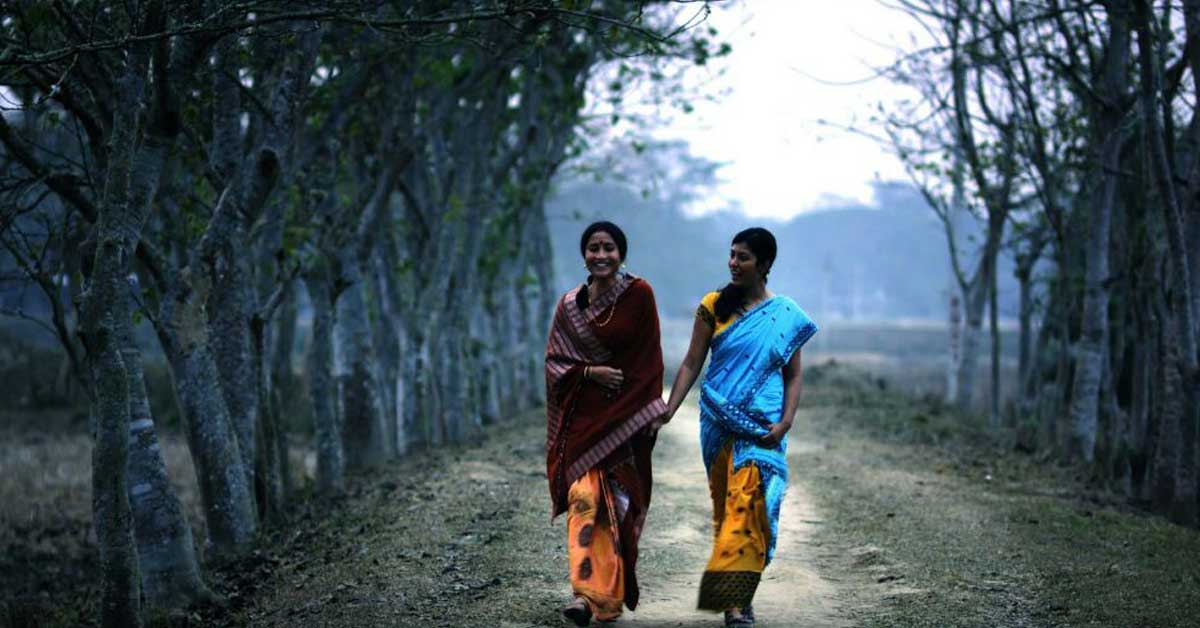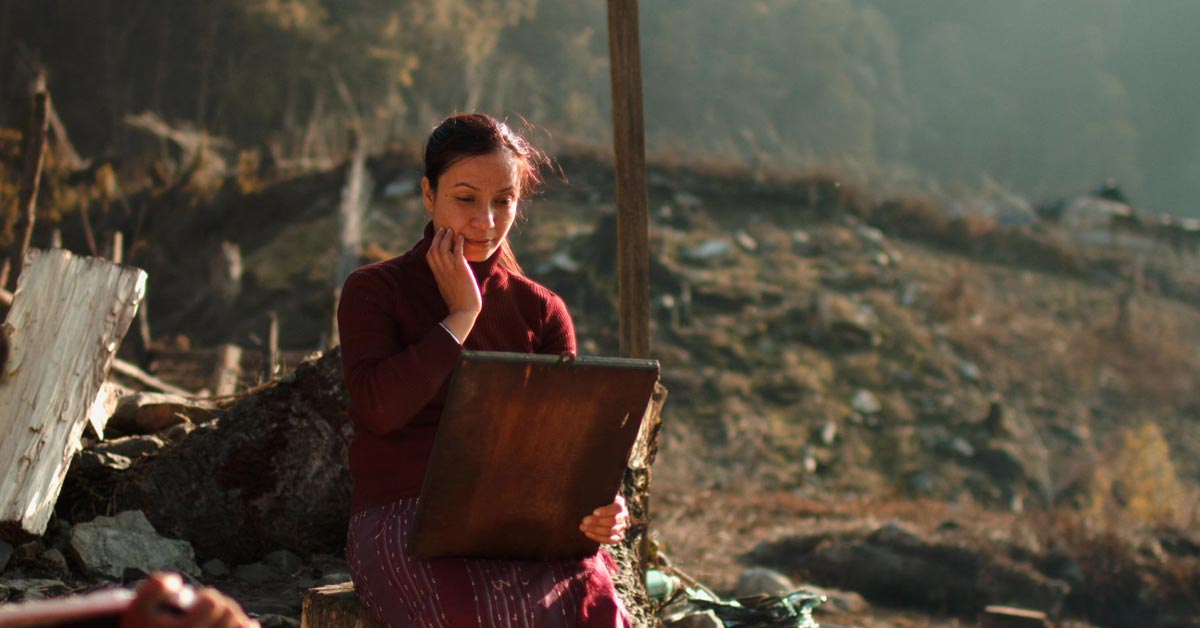
Nowadays lots of opportunities are there in this field. But to become a filmmaker one has to have adequate knowledge and focus on their dreams
Noted Assamese filmmaker Bobby Sarma Baruah was born in Kathalguri near Tezpur. The region is famous for its sprawling tea gardens.
Growing up, she used to watch lots of films and she would never miss a performance by the natives of the tea gardens and her bonding with art and culture started to flourish at a tender age.
But after the untimely demise of her father, her mother moved to Gohpur along with the nine-year-old Bobby and her two brothers. Life took a new turn and her habit of watching films took a temporary halt. In due course of time, she got married and also became the mother of two lovely kids.
As she looked after the family, she also simultaneously completed her Master's in Literature (Assamese) and B.Ed. A few years later, she would complete her Master's degree in Communication & Journalism and began her creative journey.
Her first professional job was that of a radio quickie for Upahar Tea in 2006. Then she started making only documentaries for the cultural departments in Assam. From that point onwards until today she has been deeply involved with the medium of cinema and this journey continued with various projects.
As a self-taught filmmaker, she has learned the art of direction by watching films and reading books. While making movies, she had simultaneously completed her PhD, from the Department of Communication & Journalism on "Reflection Of Folk Culture Of Assam In Assamese Cinema".
In conversation with Dipankar Sarka, the noted filmmaker spoke in detail about her creative process and choices.
Dipankar Sarkar: How did the idea of your first feature film Adomya (2014) strike you?
Bobby Sarma Baruah: The idea had come from a real story. Some people neglect the victims of HIV AIDS and they believe that this category of people is not equal to others. Many restrictions and discriminations are thrown upon them, which has become a stigma. On perceiving, such kind of discriminatory behaviours in our society it touched me and I decided to make this movie. I met the victims and had long conversations with them and I believe that my film is a small contribution to HIV-AIDS positive people. Through this movie, people can positively perceive them. This was challenging work for me as a debut filmmaker. The film touches the audience every time they watch it. Many people still discuss this movie even today.

A scene from Adomya
Dipankar Sarkar: You have attended the film appreciation course in FTII in 2014. Did it help you to hone your skills as a filmmaker?
Bobby Sarma Baruah: Yes, it has helped me immensely- particularly the environment of the institution gave me a lot during the course. I have watched many movies and attended many lectures from respected teachers, which had eventually attracted me to movies in a different way. I fell in love with the environment of FTII. Apart from that, I had also visited the NFAI library to read and collect data for my PhD. During that time, I was a PhD scholar from my university, so it was a cherry on top for me.
Dipankar Sarkar: What kind of research did you do for your sophomore Sonar Boran Pakhi (2016)?
Bobby Sarma Baruah: I did my research very thoroughly for the movie "Sonar Baran Pakhi". I have visited all the places where Padma Shri Pratima Barua Pandey was born and lived all her life till her death. I did my research with very little information on her since there was no biopic made on her earlier. I had met her family, friends, and all respected musicians throughout her life journey. This research took almost two years to complete and develop into a final script. This was another challenge for me and I read almost all books based on her life during my research work and I think research is most important for this kind of movie-making. My PhD helps me a lot to carry on any such research.

A scene from 'Sonar Boran Pakhi
Dipankar Sarkar: What attracted you to the novel by Yeshe Dorjee Thongchi novel Mishing that you decided to adapt into a feature film?
Bobby Sarma Baruah: Many good novels attract me always and I have read all collections from Yeshe Dorjee Thongchi's too. Again, for selecting this book, I have to thank my PhD for it. During my PhD, I used to visit many places and had read many books, which are mainly based on folk culture, traditions and beliefs. This book called Mishing is based on folk beliefs and the story is related to the soul as an entity. And it was very interesting to see that the Sherdukpen community still believes to have it in their society, which attracted me to the community, and I had decided to make a movie based on this book. That's how I got involved with this unique story.
Dipankar Sarkar: Your upcoming film Sikaisal won an award at the NFDC film Bazaar. How is it helpful to the film?
Bobby Sarma Baruah: Sikaisal (If only trees could talk) is my latest film, which is in its post-production stage. This movie was in WIP Lab in the Film Bazaar and was awarded the jury special mention. It was a great moment for us. All the mentors and jury liked our movie and I received many suggestions from them. As a self-taught filmmaker, this journey is my school and I learn many more things in every step of my movie-making.
Dipankar Sarkar: Sonar Boran Pakhi is in Rajbangshi, Mishing is in Sherdukpen and now Sikaisal is in Tiwa. Why do you choose to make films in different languages and dialects?
Bobby Sarma Baruah: Film is a medium through which we can preserve and archive our culture, traditions, lifestyles, community and many more. India is a country with colourful diversity, and this diversity unfolds with various communities. As a filmmaker, I wish to explore as many dialects as possible for me and I am always thirsty for unique traditions, cultures and lifestyles of people. It attracts me like honey does to bees and that's why I have made movies with a different language and different dialects. This is my intention towards the preservation and archival of regional languages for future generations.

A scene from Mishing
Dipankar Sarkar: Share your collaboration with Ratul Deka, who has edited all your films?
Bobby Sarma Baruah: Yes, there is no doubt that Ratul Deka is a good editor in this industry. Before editing my film, he had edited my 15-episode TV serial Jivan Jatra in 2009. He was a student of Dr Bhupen Hazarika Regional Government Film and Television Institute at that time, formerly known as Jyoti Chitraban Film and Television Institute. I have made my first film in 2013 and selecting him as my editor for the feature film Adomya was a good decision. He is very dedicated to his work. After the first movie, he also edited my second movie Sonar Baran Pakhi and he continues to edit all my movies. Movie making and selecting a core team is challenging work for the director. To know the person and his creativity is important for this process to prosper. Ratul having worked with me in four movies understands my style and creativity of working very well and what I need and therefore it makes our filmmaking process much easier and saves time too. It's a creative journey and therefore a creative collaboration is a must.
Dipankar Sarkar: Lastly, any piece of advice you would like to individuals who are eager to opt for filmmaking as a career choice?
Bobby Sarma Baruah: Yes, filmmaking can be a career for any individual. This is a huge industry and a big team works together to make a movie. Therefore, everyone contributes equally at different stages.
Nowadays lots of opportunities are there in this field. But to become a filmmaker one has to have adequate knowledge and focus on their dreams.
This is an art so we have to work with passion and respect, which is most important for an artist.
Dipankar Sarkar is a film critic who contributes to different publications- both national and international. He is a Research Fellowship from the NFAI, Pune, India, and was one of the panelists for the selection of world cinema at the 27th International Film Festival of Kerala in 2022.